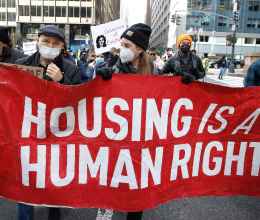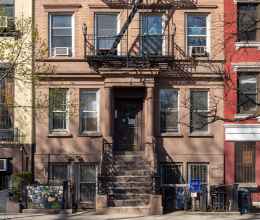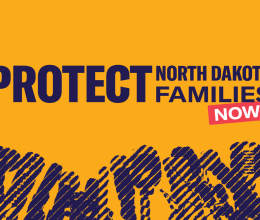
All people, regardless of their circumstances or background, should have safe and stable housing – it’s a human right.
In 1966, Dr. Martin Luther King, Jr. and Coretta Scott King left their single-family home in Atlanta’s Vine City neighborhood and moved into an apartment on Chicago’s west side.
Their goal? To draw attention to the fight for equitable housing.
“If Martin Luther King, Jr. and his family moved into a slum area, I think even the media would begin to look at the slum area more closely,” said Coretta King.
The Fair Housing Act had been introduced that same year and was championed by Dr. King. This civil rights legislation aimed to prohibit discrimination by landlords, real estate agents, and banks — but it was going nowhere fast in a country where exclusionary zoning laws and redlining had made legalized housing segregation as American as apple pie.
It was only after Dr. King’s assassination and a direct appeal from President Lyndon B. Johnson that the Fair Housing Act was passed and signed into law days after Dr. King’s death. As one housing advocate said, “Fair housing was something that he literally died for.”
In the late 1960s, Dr. King and the civil rights movement had made open housing their priority because they understood that access to housing was itself a basic human right. They also knew that housing access was intertwined with dismantling other systemic inequalities like unequal access to education, racist and violent policing, and the racial wealth gap.
Sixty years later, in every state across the country, housing is once again the civil rights issue of our time.
The ACLU has been fighting over decades for fair housing, including just evictions, housing protections for survivors of domestic violence, drawing the connection between housing segregation and police abuse, and suing over racially discriminatory lending practices.

